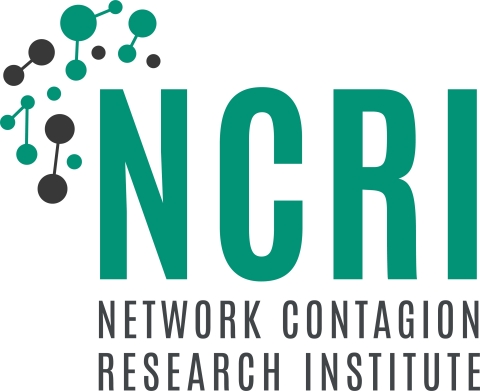NCRI Research Using Google/Walmart Data Brings Hope for Reaching Vaccine-Reluctant Communities
NCRI Research Using Google/Walmart Data Brings Hope for Reaching Vaccine-Reluctant Communities
PRINCETON, N.J.--(BUSINESS WIRE)--The Network Contagion Research Institute (NCRI), a multidisciplinary research institute that uses machine learning and scaled data analysis to map contagious threats, has published new research findings that show new inroads for reaching communities that have been reluctant to take vaccines. Reaching these populations has become more critical with the arrival of the Omicron Covid variant, which experts believe may asymmetrically impact minority communities.
The research generated a data-driven large-scale climate model of vaccine reluctance with specific underlying indicators down to the county level, which revealed factors that quantitatively forecast reluctance to Covid vaccinations on the county level. These included social media factors ranging from searches on Google indicating concerns about side effects, to tweets about Covid-related conspiracies. These findings lay the groundwork for the ability to create a map that can be updated in nearly real time to provide public health officials, the local medical community and other community leaders a better understanding of the makeup of concerns underlying local vaccine reluctance.
In addition to Google search trends, social media comments, and aggregated event/demographic databases, the research combined data from the CDC on vaccination rates with Walmart's data on vaccine distribution. Peter Norvig, Director of Research at Google, a professor at Stanford, and NCRI research contributor, said, "the NCRI is demonstrating how smart analysis of data can strengthen our dialogue across the country in the effort to beat COVID-19.”
An unexpected key finding in the research is that Walmart appears to be overperforming with communities that are high in vaccine reluctance. The research demonstrated that the presence of hard-to-reach communities such as African Americans and Trump voters was a significant predictor of success for Walmart's vaccine distribution compared to general distribution. These findings follow on programmatic outreach by Walmart to target hard to reach communities. By sharing its data publicly and its best practices in community outreach, Walmart hopes to enhance the success of other community outreach programs and accelerate shared learnings.
Aaron Bernstein, Director of Analytics at Walmart, commented: “Access to affordable and accessible care is just one way leveraging our size and scale helps us better serve communities. We realized in talking with NCRI that the framework of network science and big data could allow us to contribute valuable, anonymous information to positively impact public health and help inform the research to understand more about vaccine reluctance.”
Bernstein continued: “The report affirmed our strategy to reach underserved and rural communities by partnering with community leaders, elected officials, faith-based leaders, nonprofits and community organizations. It illustrated our positive impact in communities that would typically see more vaccine reluctance. By NCRI sharing this report, organizations can collectively address public health challenges in ways that meet people where they are; engage in more productive dialogue; contribute to the development of new capabilities; and inspire other organizations to share blind data for the broader good and affect important change.”
Adam Sohn, CEO of the NCRI added that “the NCRI hopes this research will inspire other organizations, especially vaccine distributors, to offer their data to help fortify these new forecasting capabilities. We invite those organizations to reach out to us directly to begin integrating anonymized data into a forecasting framework to better model public health challenges."
About NCRI: The Network Contagion Research Institute (NCRI) identifies and forecasts the threat and spread of misinformation and disinformation across social media platforms and the real world. Committed to quickly identifying these emerging threats, NCRI forecasts potential risks to empower partners to become proactive in protecting themselves against false narratives that create rifts of distrust that impact institutions, capital markets, public health and safety.
Contacts
Alex Goldenberg, Lead Intelligence Analyst
Network Contagion Research Institute
alex@ncri.io
